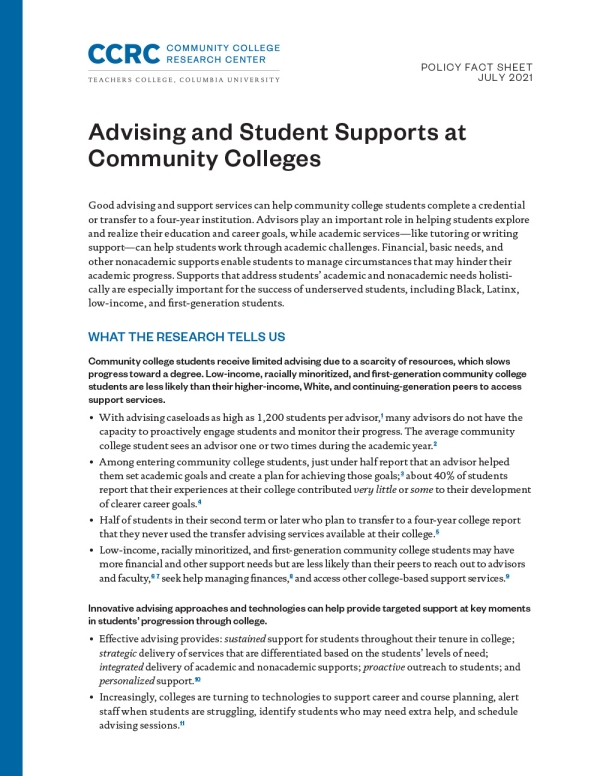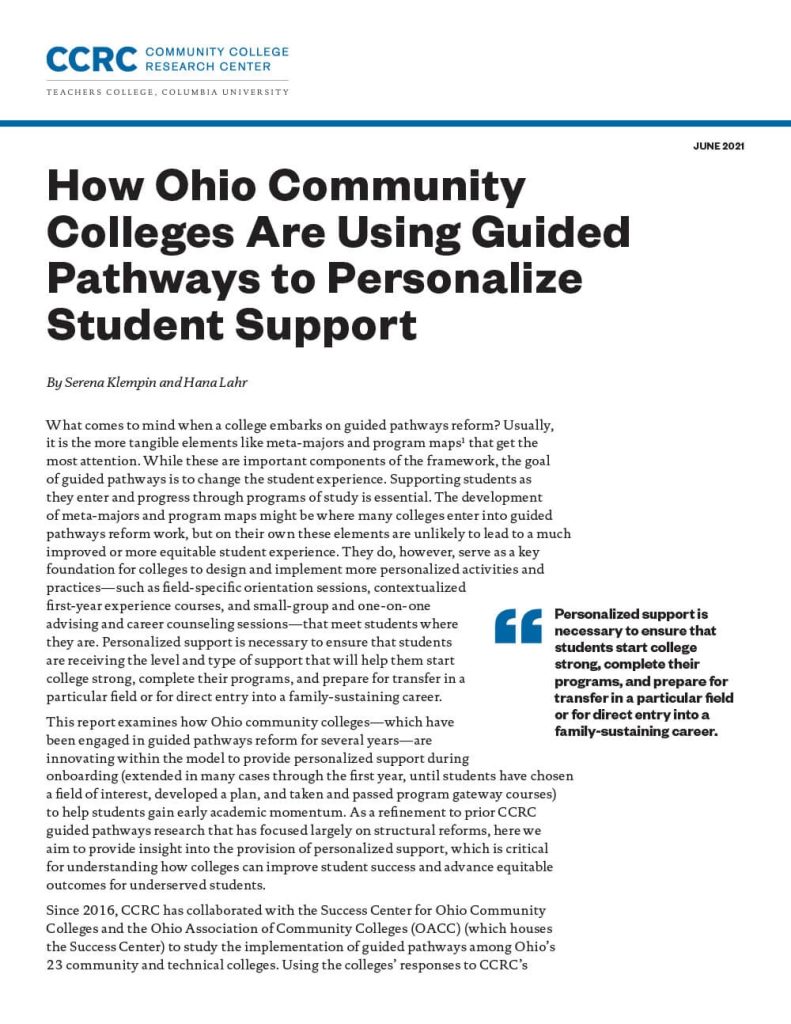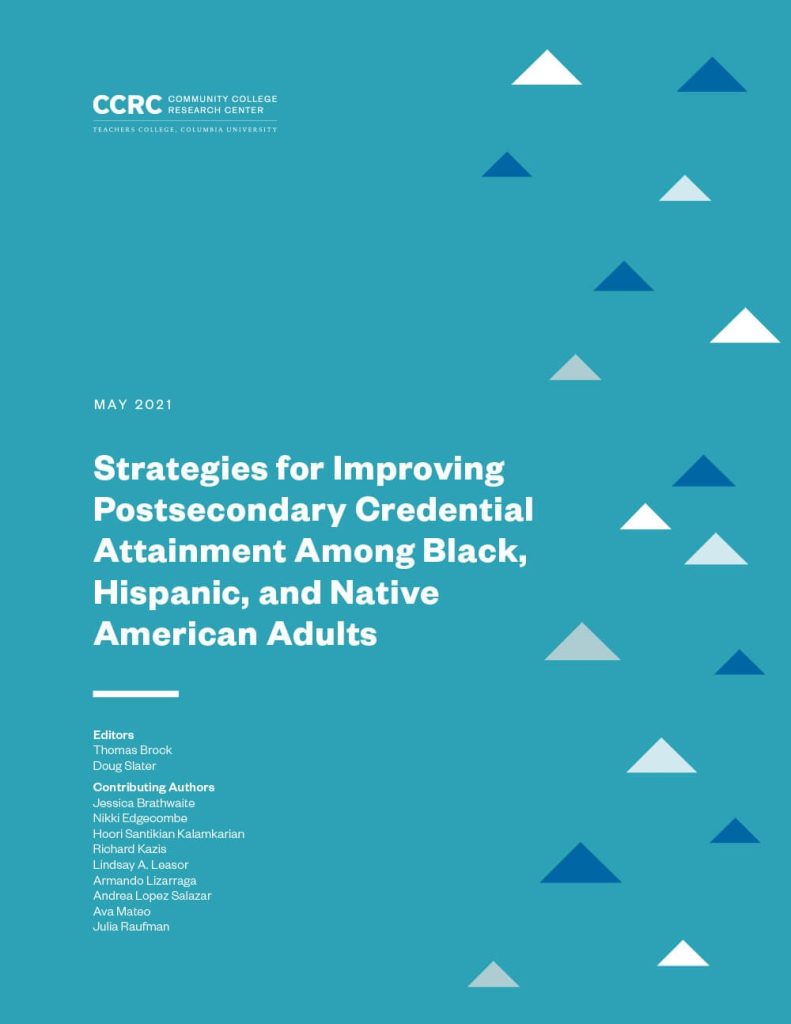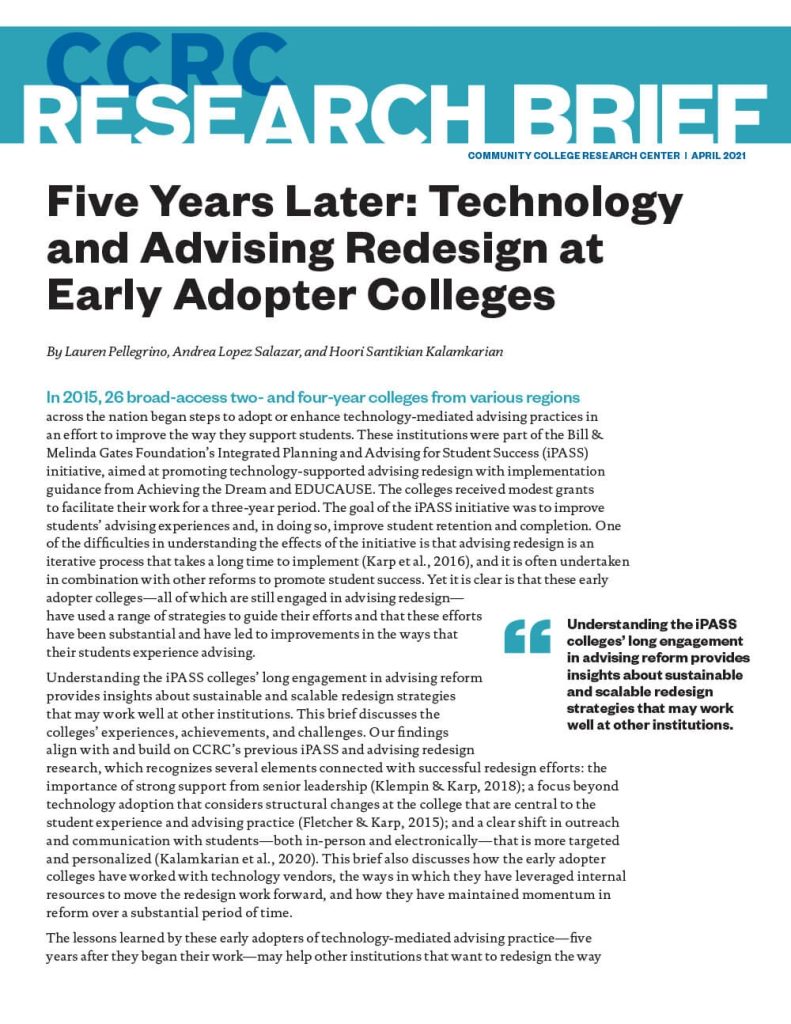Advising and Student Supports at Community Colleges

This fact sheet describes the importance of academic and nonacademic services, particularly for underserved students, and how students that receive targeted, intensive support experience improved outcomes.
Participation in Federal Work-Study

This fact sheet outlines how the Federal Work-Study program works, its effects on academic and labor market outcomes, and why so few community college students receive Federal Work-Study aid.
How Ohio Community Colleges Are Using Guided Pathways to Personalize Student Support

This report examines how Ohio community colleges—which have been engaged in guided pathways reform for several years—are innovating within the model to provide scaled, personalized support to help students gain early academic momentum.
Strategies for Improving Postsecondary Credential Attainment Among Black, Hispanic, and Native American Adults

This set of three studies examines what states and community colleges can do to address the needs of racially minoritized adult learners who are pursuing postsecondary education and training as a path to re-employment, better jobs, and higher incomes.
Five Years Later: Technology and Advising Redesign at Early Adopter Colleges

This brief discusses the experiences, achievements, and challenges of 26 broad-access two- and four-year colleges that, in 2015, began steps to adopt or enhance technology-mediated advising practices to improve the way they support students.
